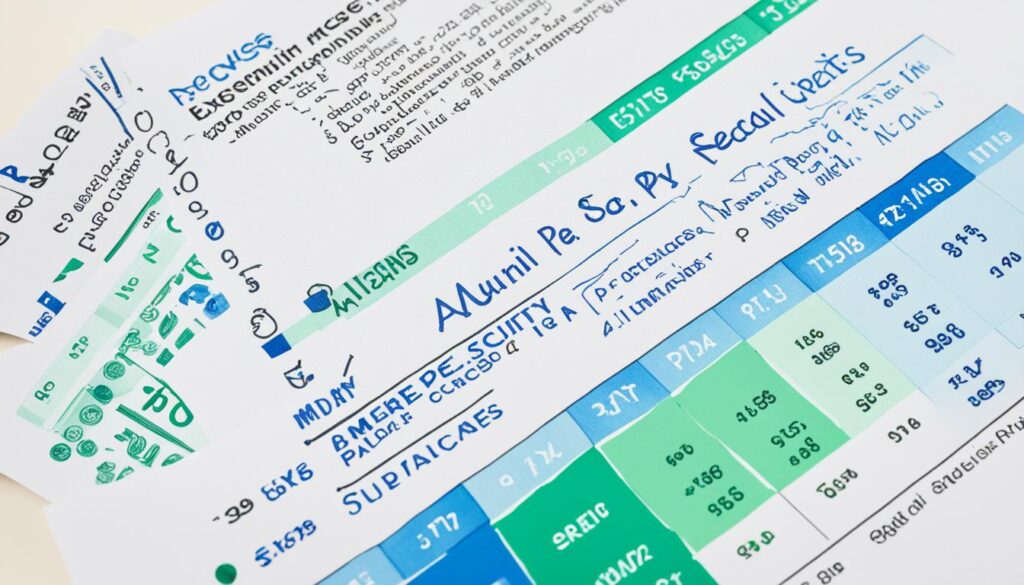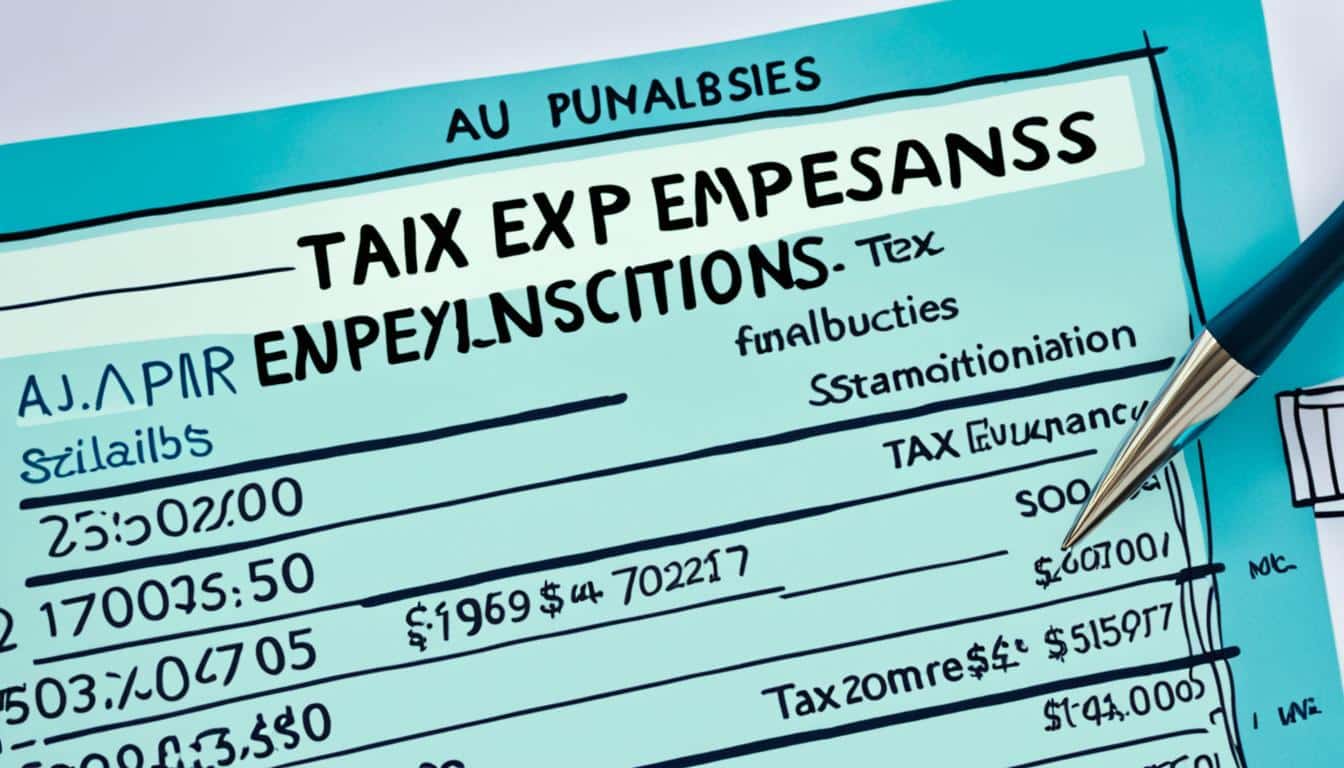Are you considering hosting an au pair to provide childcare for your family? While the benefits of having an au pair are clear – cultural exchange, flexibility, and personalized care for your children – the financial aspects can sometimes be a bit murky. Au pair expenses and tax deductions can be a confusing topic for many people, and understanding the tax benefits and rules associated with hosting an au pair is essential.
Let me tell you the story of Sarah, a working mother who decided to host an au pair to help her juggle the demands of her job and her kids’ busy schedules. Sarah was thrilled to welcome Maria, an au pair from Spain, into her home. With Maria’s arrival, Sarah found herself with more time to focus on her career and enjoy quality time with her family.
As time went on, Sarah started to wonder about the financial side of hosting an au pair. She had heard that there were potential tax advantages, but she wasn’t sure how to navigate the complex world of au pair taxes. Determined to make the most of her situation, Sarah dove into research and consulted reliable sources to get a clearer understanding of how au pair expenses could be tax deductible.
After extensive research, Sarah discovered that, as a host family, she could be eligible for tax benefits. While she couldn’t provide tax advice, Sarah learned that there were potential tax deductions available for qualifying au pair expenses, such as program fees, stipends, and other related costs.
With this newfound knowledge, Sarah felt more confident and prepared when it came time to file her taxes. She learned about the Child and Dependent Care Tax Credit, which could help offset the cost of hosting an au pair and potentially reduce her tax liability.
By keeping meticulous records of her au pair expenses and consulting with a tax professional, Sarah was able to take advantage of the tax benefits available to host families. She was relieved to discover that hosting an au pair not only provided the perfect childcare solution for her family but also had financial advantages.
Whether you’re a host family or an au pair, understanding the tax implications of the au pair program is crucial. It’s essential to consult the IRS and consider seeking guidance from a tax professional with experience in au pair taxes to ensure compliance and maximize your tax benefits.
Key Takeaways:
- Hosting an au pair may offer potential tax benefits for host families.
- Qualifying au pair expenses, such as program fees and stipends, may be tax deductible.
- The Child and Dependent Care Tax Credit can help offset the cost of hosting an au pair.
- Consult the IRS and consider seeking guidance from a tax professional with au pair tax expertise.
- Keep detailed records of your au pair expenses to support any tax deductions or credits you claim.
General Information on Au Pair Taxes
When it comes to filing taxes for au pair expenses, it’s essential to understand the IRS rules and guidelines to maximize your tax savings with an au pair program. While we cannot provide specific tax advice, we can offer general information to help you navigate this topic effectively.
Most au pairs are considered ‘non-resident aliens’ for tax purposes. However, if an au pair has been in the U.S. in a different nonimmigrant status, there may be different rules to consider. It’s always best to consult the IRS or a tax professional for detailed definitions and information specific to your situation.
As a host family, you are responsible for reporting your au pair’s income, but you are generally not required to withhold taxes unless the au pair requests it. However, keep in mind that hosting an au pair can present potential tax benefits.
One of the tax-saving opportunities is the Child and Dependent Care Tax Credit, which allows eligible host families to claim a credit for qualifying au pair expenses. This credit can help reduce the amount of taxes owed and offset the cost of childcare. To determine your eligibility and gain a better understanding of this tax credit, consult the IRS tax assistant tool and the Tax Guide provided by your au pair program.
Here is a breakdown of some potential tax benefits associated with hosting an au pair:
- Au pair stipends and program fees may be eligible for the Child and Dependent Care Tax Credit.
- Some host families may have access to Dependent Care Reimbursement Programs through their employers, which can help reimburse au pair-related expenses.
Consult with your employer to determine if you have access to such programs and to understand the specific rules and benefits they offer.
Tax Credits and Savings at a Glance
To provide you with a quick overview of the potential tax credits and savings, here’s a table summarizing the benefits:
| Tax Benefit | Description |
|---|---|
| Child and Dependent Care Tax Credit | A tax credit that can be claimed for qualifying au pair expenses, reducing the amount of taxes owed. |
| Dependent Care Reimbursement Programs | Employer-sponsored programs that may reimburse au pair-related expenses, such as stipends, room and board costs, and program fees. |
Remember, these tax benefits are subject to specific eligibility requirements and IRS regulations. It’s crucial to consult a tax professional or refer to the IRS guidelines for comprehensive guidance tailored to your unique circumstances.
Child and Dependent Care Tax Credit
Are you aware that you may be able to claim au pair expenses on your taxes? Host families can take advantage of the Child and Dependent Care Tax Credit, which provides a credit for qualifying au pair expenses.
This tax credit can be a lifesaver, helping to offset the cost of childcare and reducing the amount of taxes you owe. To determine your eligibility for this credit, there are a few steps to follow:
- Use the IRS tax assistant tool to calculate if you meet the requirements.
- Consult the Tax Guide provided by your au pair program for additional guidance.
It is crucial to keep detailed records of your au pair stipends, program fees, and any other qualifying expenses to support your claim for this tax credit.

Record-keeping Tips
To maximize your tax deductions and claim the Child and Dependent Care Tax Credit successfully, here are some record-keeping tips:
- Maintain accurate records of your au pair stipends and program fees.
- Keep receipts for any additional qualifying expenses, such as educational materials or meals.
- Organize your records throughout the year for easy access during tax season.
By staying organized and keeping meticulous records, you can confidently claim the child and dependent care tax deductions you’re entitled to.
Dependent Care Reimbursement Programs
Did you know that some host families may be eligible for tax credits and reimbursement programs related to hosting an au pair? Dependent Care Reimbursement Programs offered by employers can provide additional financial benefits to host families. These programs allow for reimbursement of various au pair-related expenses, including stipends, room and board costs, and program fees.
Eligibility for these programs is similar to the requirements for the Child and Dependent Care Tax Credit, making it even more beneficial for host families to explore these options. By taking advantage of these reimbursement programs, you can receive financial assistance for the expenses associated with hosting an au pair, ultimately reducing the financial burden.
Consulting your employer is the best way to determine the specific guidance and tax benefits available for hosting an au pair through Dependent Care Reimbursement Programs. Be sure to ask your employer about their policies and any required documentation needed to qualify for these tax credits. Make the most of your host family tax credits and enjoy the benefits of hosting an au pair.
Here is an example of how Dependent Care Reimbursement Programs can provide tax benefits for host families.
| Expenses | Amount |
|---|---|
| Au pair stipend | $10,000 |
| Room and board | $5,000 |
| Program fees | $2,000 |
By enrolling in a Dependent Care Reimbursement Program, host families may be eligible to receive reimbursement for a portion of these expenses, helping to offset the overall cost of hosting an au pair. It’s important to consult your employer for the exact reimbursement rates and guidelines applicable to your specific program.
Remember, every penny counts when it comes to managing your finances. By taking advantage of host family tax credits and qualifying for au pair tax benefits, you can make hosting an au pair an even more financially advantageous choice for your family.
Au Pair Tax Information
If you’re an au pair in the United States, you might be wondering about your tax obligations. Well, here’s the scoop: as an au pair, you’re considered an employee for tax purposes, which means you’re required to file U.S. individual income tax returns. Don’t worry, though, we’ve got the lowdown on the IRS requirements for au pair taxes.
So let’s get down to business. Nonresident alien au pairs can use Form 1040-NR to file their tax returns, while resident alien au pairs may use Form 1040. It’s important to keep records of your au pair income for tax filing purposes. Trust us, you don’t want to be scrambling to find those pay stubs at the last minute!
Now, here’s the not-so-fun part. As an au pair, you’re not eligible for certain tax credits, like the Earned Income Tax Credit and education-related credits. But hey, at least you won’t have to worry about those complicated calculations, right?
To make things easier for you, take a look at this handy table summarizing the IRS requirements for au pair taxes:
| Au Pair Tax Information | Form to Use |
|---|---|
| Nonresident alien au pairs | Form 1040-NR |
| Resident alien au pairs | Form 1040 |
| Tax credits available | N/A for au pairs |
Remember, if you have any doubts or need further assistance with your au pair taxes, it’s always a good idea to consult a tax professional. They’ll be able to guide you through the process and help ensure everything is done correctly.
Now that you know the IRS requirements for au pair taxes, you can tackle those tax forms like a pro. And remember, even though taxes can be a bit of a headache, it’s all part of being a responsible and law-abiding au pair. Happy filing!

Social Security and Medicare Taxes
Au pair wages are generally not subject to social security and Medicare taxes because of the au pair’s status as a nonresident alien. However, if an au pair had previously been in the U.S. in a different nonimmigrant status, they may be considered a resident alien and subject to these taxes. In such cases, the host family must withhold and report these taxes, and the au pair needs to apply for a U.S. Social Security number.

Understanding Social Security and Medicare Taxes for Au Pairs
As a host family, it’s important to know the rules and regulations concerning social security and Medicare taxes for au pairs. Generally, au pairs are exempt from these taxes due to their nonresident alien status. However, if your au pair has previously been in the U.S. under a different nonimmigrant status, they may be treated as a resident alien for tax purposes, which means they would be subject to these taxes.
For au pairs considered resident aliens, the host family is responsible for withholding and reporting social security and Medicare taxes. These taxes are calculated based on the au pair’s wages, just like any other employee. It’s important to consult with a tax professional or refer to IRS guidelines to ensure compliance with these requirements.
Applying for a U.S. Social Security Number
If your au pair is considered a resident alien and is required to pay social security and Medicare taxes, they will need to apply for a U.S. Social Security number. The Social Security Administration (SSA) issues these numbers to individuals who are eligible to work in the U.S. and pay taxes. Applying for a Social Security number involves completing an application and providing the necessary documentation, such as a valid passport and visa.
Once your au pair obtains a Social Security number, both the au pair and the host family can use this number for tax reporting and other purposes. It’s important to keep this information confidential and secure to protect against identity theft or fraud.
Remember, each situation is unique, and it’s crucial to consult with a tax professional or refer to IRS guidelines to determine the specific tax obligations and requirements for your au pair.
Assistance and Resources for Au Pair Taxes
Filing taxes can be as confusing as translating a foreign language, especially when it comes to deciphering au pair expenses. Fortunately, there are experts who can help guide you through this linguistic maze. Consulting a tax professional who specializes in au pair taxes is highly recommended to ensure you dot every ‘i’ and cross every ‘t’ on your tax forms. These professionals have the knowledge and experience to navigate the complexities of au pair tax rules and help you make the most of any available deductions or credits.
When it comes to tackling au pair tax forms solo, the IRS website is your trusty online dictionary. They offer a wealth of resources and information specifically tailored for au pairs and host families. From step-by-step instructions on obtaining a Social Security number to guidelines for filing income tax returns, their website is a treasure trove of invaluable information. So, make sure to bookmark it and refer to it whenever you have questions or are in need of clarification.
Another valuable resource for all things au pair taxes is au pair agencies, like Go Au Pair. These agencies partner with tax experts who are well-versed in the unique tax requirements for au pairs. Their expertise can alleviate the stress of tax season and ensure that you remain compliant with IRS regulations. So, don’t be shy about reaching out to them for assistance and tapping into their wealth of knowledge.








